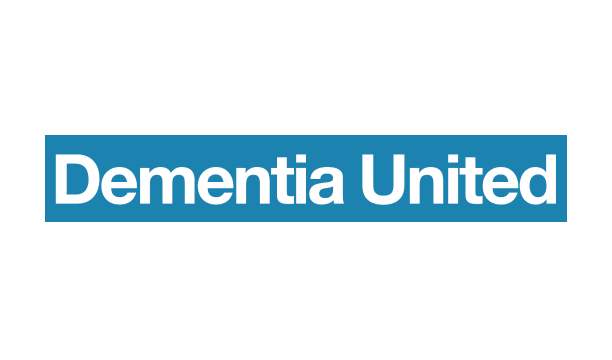Event
Mild cognitive impairment virtual course 2022
This course has now closed, please pre-register for the next Mild Cognitive Impairment 2023 course here: https://neurologyacademy.org/e...
Our sponsor

This event has been part funded by sponsorship from Roche Products Limited. The sponsor has had no control over the organisation or educational content of this event.

This virtual course is intended to equip people across the UK with knowledge and understanding of diseases which affect cognition and thinking, focusing on improving diagnosis, support and information for people with mild cognitive impairment (MCI).
It also draws on the concept of brain health to combine existing evidence and tools to explore how we can improve services and models of care for dementia prevention where this is possible, and for early escalation of care, where it is not.
Background
Growing evidence suggests that supporting lifestyle changes for people with a mild cognitive impairment (MCI) could improve the health of their brains and may reduce their risk of developing dementia. Indeed, recent evidence suggests that up to 40% of dementia cases may be potentially preventable through modification of life-course risk factors (Livingston 2020).
Unfortunately, this important window of opportunity to reduce dementia risk and improve wellbeing is often missed in existing UK clinical pathways, where people with an MCI diagnosis are commonly discharged without follow-up and asked to ‘watch and wait’ for their condition to deteriorate (Leroi et al, 2020).
Ensuring a broad understanding of the diseases and conditions which can lead to cognitive impairment, the diagnostic processes and, importantly, appropriate referral pathways and interventions for risk mitigation will all contribute to improving outcomes for people experiencing MCI, and lead to a more brain-healthy society as a whole.
What will delegates learn?
The virtual course will cover 8 modules, featuring various expert speakers across different themes, with 2 further modules and support for participants who choose to carry out a quality improvement project locally.
Quality improvement projects take place over 6 months and are optional, small-scale ways to translate your learning into local service improvement. Practical suggestions and examples of quality improvement projects will be included throughout the course, with mentors available, and the opportunity to share learning more widely after the course is completed.
"The duration of each lecture perfect and pitched at great level. Good range of supplementary material. Found the last body module particularly useful and will lead to change of practice"
Delegate feedback from MCI course 2021
Practical ideas for quality improvement
As a result of the projects from our 2021 course, we are delighted to publish our first 'Education with Impact' booklet, 'Quality improvement in mild cognitive impairment (MCI): Stories from across the UK and Ireland'. The booklet contains a range of different projects carried out by delegates on the first MCI course.
Who is this course for?
This course is intended for anyone involved in services or support for people affected by mild cognitive impairment, or dementia. This might include health professionals across primary, secondary and tertiary services, social care professionals, providers, members of the voluntary sector, service managers and commissioners, and people experiencing mild cognitive impairment themselves.
As such, the material covered will focus on a clear evidence-base for interventions in MCI and reducing risk of dementia across the population, practical examples of different approaches to service models and interventions, and clarity around collaborative solutions, and involving a wide variety of stakeholders at all levels of planning and provision.
Timeframe
Modules 1-8 first module launches July 2022, and weekly thereafter
- Module 9: QI project submission presentation during October (live)
opportunity to submit 3 minute proposal video in advance to share as a pre-recording if necessary
- Module 10: Presenting QI project April 2023 (live)
opportunity to submit 3 minute presentation video in advance to share as a pre-recording if necessary
Cost of the course
This is a free course for UK delegates. To reserve your space on this course, please complete our registration form.
Access to course resources
Delegates will be able to access sessions, presentation slides and other resources for 12 months after completion of the course with their website account.
Funded by

This activity has been part-funded by the Greater Manchester Health and Social Care Programme through its Dementia Programme (Dementia United). The Dementia United programme, as part of an Integrated Care system, is happy to support this work and has contributed towards the development of the course.
Our sponsor

This event has been part funded by sponsorship from Roche Products Limited. The sponsor has had no control over the organisation or educational content of this event.
Chair
 Dr Sarah Fox
Dr Sarah FoxSenior fellow, Global Brain Health Institute
Speakers
 Prof Craig Ritchie
Prof Craig RitchieProfessor of the Psychiatry of Ageing, University of Edinburgh
 Sue Thomas
Sue ThomasIndependent healthcare consultant & PPV member, NHSE neurology transformation CRG
 Dr Jonathan Kaye
Dr Jonathan KayeClinical lead for dementia, Manchester Health and Care Commissioning
 Dr Wilby Williamson
Dr Wilby WilliamsonAssistant professor, physiology, Trinity College Dublin
 Dr Ross Dunne
Dr Ross DunneConsultant old age psychiatrist, Greater Manchester Mental Health NHS Foundation Trust
 Prof Piers Dawes
Prof Piers DawesProfessor of audiology, University of Queensland and the University of Manchester
 Georgina Carr
Georgina CarrCEO, The Neurological Alliance
 Ruth Stross
Ruth StrossDirector of services, MS Trust
 Dr Karen Harrison Dening
Dr Karen Harrison DeningHead of research & publications, dementia UK and admiral nursing, professor of dementia nursing (honorary), De Montfort University, Leicester
 Sue Hinds
Sue HindsHead of Services, Dementia Carers Count
 Dr Nina Mohan
Dr Nina MohanCT2 Psychiatry, NIMDTA: Southern Health and Social Care Trust
 Abdul Shakoor
Abdul ShakoorBAME Dementia Family Link Worker, Tameside and Glossop Mind
 Ann Marie Jones
Ann Marie JonesChief executive, Age UK Trafford
 Julie Riley
Julie RileyRetired deputy director of strategy, The Walton Centre NHS Foundation Trust
 Dominic Campbell
Dominic CampbellCultural producer
 Michael Foley
Michael FoleyResearch assistant, School of Nursing & Midwifery
 Jacqui Cannon
Jacqui CannonChief executive, The Lewy Body Society
 Lorraine Haining
Lorraine HainingSpecialist practitioner, Dementia Carers Count
 Sarah Walker
Sarah WalkerProgramme Manager – Capability Building
Related events
Promoting prevention, supporting management
Led by proactive clinicians determined to see improvement in the way we prevent, diagnose and manage dementias, Dementia Academy supports healthcare professionals with the latest tools, resources and courses to do just that.
